
For the first time in his presidency Bush addressed a Democrat-controlled congress [Reuters]
George Bush, the US president, has used his seventh annual State of the Union address to urge Congress to give his Iraq plan "a chance to work".
He warned against "failure" in Iraq and described the war there as part of a larger battle against Sunni and Shia extremists who were "faces of the same totalitarian threat".
bodyVariable350="Htmlphcontrol1_lblError";
"Many in this chamber understand that America must not fail in Iraq - because you understand that the consequences in failure would be grievous and far reaching," Bush said.
He also addressed domestic issues, proposing fuel usage cuts to curb climate change and health care and education reforms.
bodyVariable300="Htmlphcontrol2_lblError";
"Totalitarian threat"
He said the Iraq war had changed dramatically with the outbreak of sectarian warfare and reprisals.
"This is not the fight we entered in Iraq, but it is the fight we are in," he said.
"It is still within our power to shape the outcome of this battle," the president said. "So let us find our resolve and turn events toward victory."
He said Shia extremists backed by Iran and Sunni extremists aided by al-Qaeda and the "old regime" would take over in Baghdad if America "failed" in Iraq.
He said the most important mission in America's history was to "spare the American people from this danger" and asked for support for his plan to send an extra 21,500 US troops to Iraq.
A Washington-Post/ABC News poll released on Monday gave Bush a job approval rating of 33 per cent, showing him to be at the weakest point of his presidency.
In his address to a nation increasingly opposed to the Iraq war and to a congress which for the first time in his presidency is controlled by Democrats, Bush stressed the need for unity.
Domestic policy
Bush also used the address to outline a domestic policy for the year.
"A future of hope and opportunity begins with a growing economy - and that is what we have. Unemployment is low, inflation is low, and wages are rising," he said, adding that more enterprise rather than increased government intervention was key.
He also called for Republicans and Democrats to overcome differences concerning the direction of social security spending.
He proposed a reduction in US fuel usage by 20 per cent in 10 years, an increase in health care for Americans, a new immigration policy and improvements to education.
Bush said that improved vehicle fuel standards and diversification of energy sources – such as the use of ethanol fuel – was necessary.
"It is in our vital interest to diversify America's energy supply and the way forward is through technology," he said.
The energy proposals by Bush fall short of seeking mandatory caps on carbon emissions which are sought by some Democrats in the congress.
Bush is not pushing for a specific increase in the Corporate Average Fuel Economy (CAFE) standards, which many experts see as critical to reduce oil usage but which the White House fears would prompt manufacturers to build smaller, less-safe cars.
Instead, he will ask congress for authority to reform CAFE standards, with the goal of reducing projected annual fuel use by up to 8.5 billion gallons, according to Joel Kaplan, the deputy White House chief of staff.
Strategic reserve
Bush also called for doubling the strategic petroleum reserve from 727 million barrels to 1.5 billion barrels, in a bid to bolster US energy security.
"It is in our vital interest to diversify America's energy supply and the way forward is through technology," he said.
The energy proposals by Bush fall short of seeking mandatory caps on carbon emissions which are sought by some Democrats in the congress.
Bush is not pushing for a specific increase in the Corporate Average Fuel Economy (CAFE) standards, which many experts see as critical to reduce oil usage but which the White House fears would prompt manufacturers to build smaller, less-safe cars.
Instead, he will ask congress for authority to reform CAFE standards, with the goal of reducing projected annual fuel use by up to 8.5 billion gallons, according to Joel Kaplan, the deputy White House chief of staff.
Strategic reserve
Bush also called for doubling the strategic petroleum reserve from 727 million barrels to 1.5 billion barrels, in a bid to bolster US energy security.
The US will begin buying extra oil this spring as part of a plan by the Bush administration to expand emergency reserves, the White House said on Tuesday.
"Expanding the strategic petroleum reserve is a wise and a prudent policy decision that would provide an additional layer of protection for our nation's energy security," said Sam Bodman, the US energy secretary.
Meanwhile, Bush's health care plan will propose making health insurance taxable income and deductible up to $15,000 a year for families, starting in 2009.
The move could raise taxes for as many as 30 million Americans but lower costs for many others.
A US official said the plan would cost $30 to $40 billion in its formative years but eventually pay for itself.
"Expanding the strategic petroleum reserve is a wise and a prudent policy decision that would provide an additional layer of protection for our nation's energy security," said Sam Bodman, the US energy secretary.
Meanwhile, Bush's health care plan will propose making health insurance taxable income and deductible up to $15,000 a year for families, starting in 2009.
The move could raise taxes for as many as 30 million Americans but lower costs for many others.
A US official said the plan would cost $30 to $40 billion in its formative years but eventually pay for itself.
posted by aljazeera.net





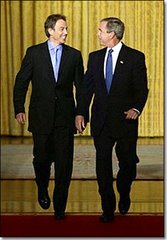

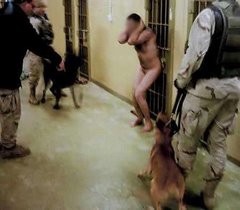
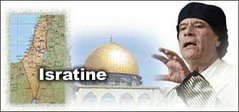

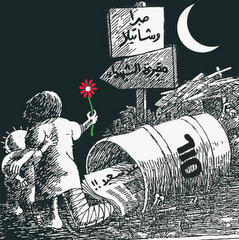

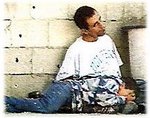
No comments:
Post a Comment